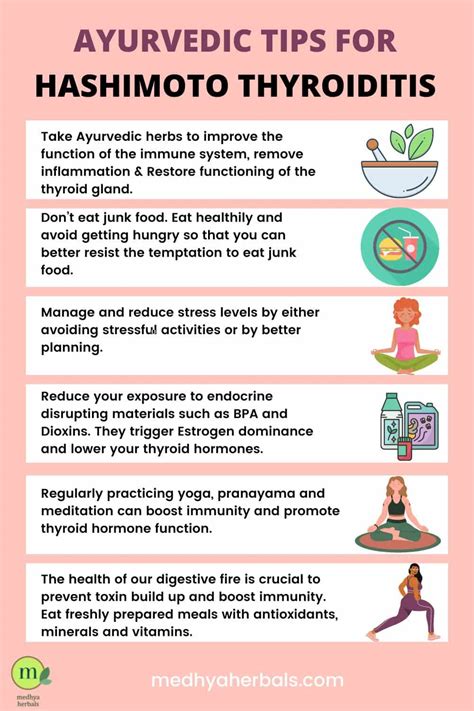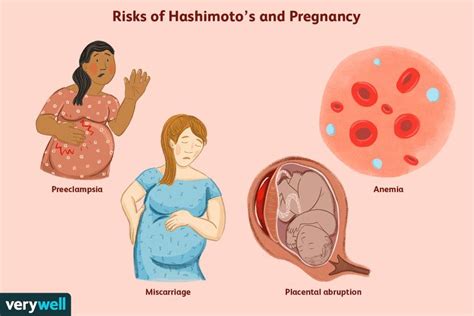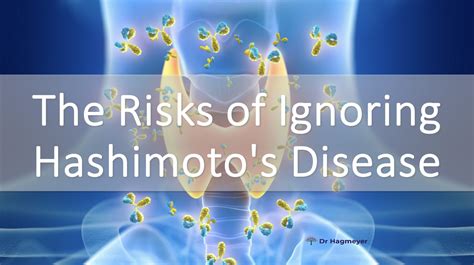Intro
Discover effective Hashimotos thyroiditis treatment options, including dietary changes, supplements, and medication, to manage symptoms and alleviate autoimmune thyroid disease, hypothyroidism, and thyroid inflammation.
Hashimoto's thyroiditis is an autoimmune disorder that affects the thyroid gland, leading to hypothyroidism. It is a condition where the immune system mistakenly attacks the thyroid gland, causing inflammation and damage. This can lead to a decrease in the production of thyroid hormones, which are essential for various bodily functions. The treatment options for Hashimoto's thyroiditis are designed to manage the symptoms, slow down the progression of the disease, and improve the quality of life.
The importance of treating Hashimoto's thyroiditis cannot be overstated. If left untreated, the condition can lead to serious health complications, such as heart disease, mental health issues, and infertility. Moreover, Hashimoto's thyroiditis can also increase the risk of developing other autoimmune disorders, such as rheumatoid arthritis and lupus. Therefore, it is essential to seek medical attention if you are experiencing symptoms of Hashimoto's thyroiditis, such as fatigue, weight gain, and hair loss.
Hashimoto's thyroiditis is a chronic condition, and there is no cure. However, with the right treatment, it is possible to manage the symptoms and prevent complications. The treatment options for Hashimoto's thyroiditis are varied and depend on the severity of the condition, as well as the individual's overall health. In this article, we will explore the different treatment options for Hashimoto's thyroiditis, including medication, lifestyle changes, and alternative therapies.
Medication for Hashimoto's Thyroiditis

Levothyroxine is usually taken orally, and the dosage is adjusted based on the individual's thyroid hormone levels. It is essential to take levothyroxine consistently and at the same time every day to maintain stable thyroid hormone levels. Other medications, such as liothyronine (T3), may also be prescribed in some cases. However, liothyronine is not as commonly used as levothyroxine, as it can have more side effects.
Benefits and Risks of Medication
The benefits of medication for Hashimoto's thyroiditis are numerous. Medication can help alleviate symptoms, improve energy levels, and prevent complications. However, there are also potential risks and side effects associated with medication. Common side effects of levothyroxine include headache, fatigue, and weight loss. In rare cases, levothyroxine can also cause more serious side effects, such as allergic reactions and liver damage.Lifestyle Changes for Hashimoto's Thyroiditis

Regular exercise can also help improve energy levels and reduce stress. Activities such as yoga, walking, and swimming are low-impact and can be modified to suit individual needs. Stress management techniques, such as meditation and deep breathing, can also help reduce stress and promote relaxation. Getting enough sleep is also essential, as it can help regulate thyroid hormone levels and improve overall health.
Importance of Gluten-Free Diet
Some research suggests that a gluten-free diet may be beneficial for individuals with Hashimoto's thyroiditis. Gluten is a protein found in wheat, barley, and rye, and some people with Hashimoto's thyroiditis may have a sensitivity to gluten. A gluten-free diet can help reduce inflammation and alleviate symptoms. However, it is essential to consult with a healthcare provider before making any significant changes to your diet.Alternative Therapies for Hashimoto's Thyroiditis

Herbal supplements, such as ashwagandha and bladderwrack, may also be used to support thyroid health. Ashwagandha is an adaptogenic herb that can help reduce stress and promote relaxation. Bladderwrack is a seaweed that is high in iodine and may help support thyroid function. However, it is essential to consult with a healthcare provider before using any herbal supplements, as they can interact with medication and have side effects.
Importance of Vitamin D
Vitamin D is an essential nutrient that plays a crucial role in immune function and thyroid health. Some research suggests that vitamin D deficiency may be associated with an increased risk of autoimmune disorders, including Hashimoto's thyroiditis. Maintaining adequate vitamin D levels through sun exposure, diet, and supplements can help support immune function and thyroid health.Managing Hashimoto's Thyroiditis During Pregnancy

Importance of Prenatal Care
Prenatal care is essential for women with Hashimoto's thyroiditis. Regular check-ups with a healthcare provider can help monitor thyroid hormone levels and adjust medication as needed. A healthy diet and lifestyle can also help support thyroid health and overall well-being during pregnancy.Complications of Untreated Hashimoto's Thyroiditis

Importance of Early Diagnosis
Early diagnosis and treatment of Hashimoto's thyroiditis are essential to prevent complications and improve quality of life. Regular thyroid function tests and physical exams can help diagnose Hashimoto's thyroiditis in its early stages. If you are experiencing symptoms of Hashimoto's thyroiditis, such as fatigue, weight gain, and hair loss, it is essential to consult with a healthcare provider for proper diagnosis and treatment.What are the symptoms of Hashimoto's thyroiditis?
+The symptoms of Hashimoto's thyroiditis include fatigue, weight gain, hair loss, dry skin, and cold intolerance. Other symptoms may include depression, anxiety, and memory problems.
How is Hashimoto's thyroiditis diagnosed?
+Hashimoto's thyroiditis is diagnosed through a combination of physical exams, medical history, and laboratory tests. Thyroid function tests, such as TSH and free T4, can help diagnose hypothyroidism. Antibody tests, such as anti-TPO and anti-thyroglobulin, can help confirm the diagnosis of Hashimoto's thyroiditis.
Can Hashimoto's thyroiditis be cured?
+Hashimoto's thyroiditis is a chronic condition, and there is no cure. However, with proper treatment and lifestyle changes, it is possible to manage the symptoms and prevent complications.
How can I manage Hashimoto's thyroiditis during pregnancy?
+Managing Hashimoto's thyroiditis during pregnancy requires close monitoring of thyroid hormone levels and adjustment of medication as needed. Regular prenatal care and a healthy diet and lifestyle can also help support thyroid health and overall well-being during pregnancy.
What are the complications of untreated Hashimoto's thyroiditis?
+Untreated Hashimoto's thyroiditis can lead to serious health complications, such as heart disease, mental health issues, and infertility. Hypothyroidism can also increase the risk of osteoporosis and other autoimmune disorders.
In conclusion, Hashimoto's thyroiditis is a complex condition that requires a comprehensive treatment approach. Medication, lifestyle changes, and alternative therapies can all play a role in managing the symptoms and preventing complications. By working closely with a healthcare provider and making informed lifestyle choices, individuals with Hashimoto's thyroiditis can improve their quality of life and reduce the risk of complications. We encourage you to share your experiences and questions about Hashimoto's thyroiditis in the comments section below. Additionally, if you found this article informative, please share it with others who may be struggling with this condition. Together, we can raise awareness and promote education about Hashimoto's thyroiditis and other autoimmune disorders.
